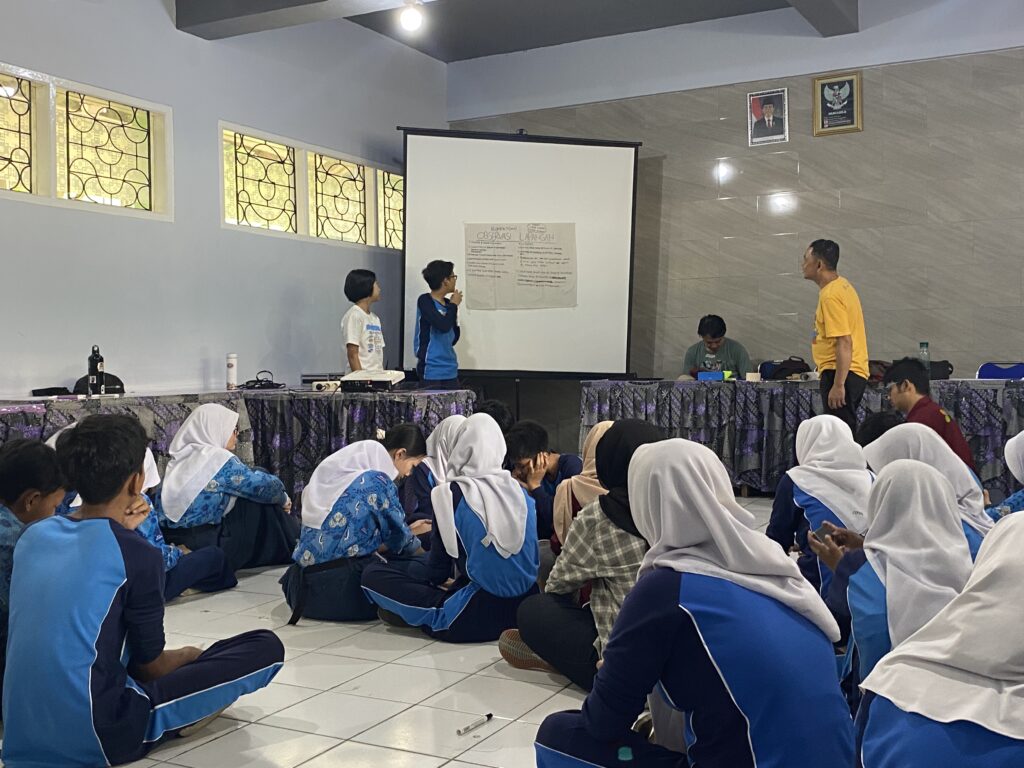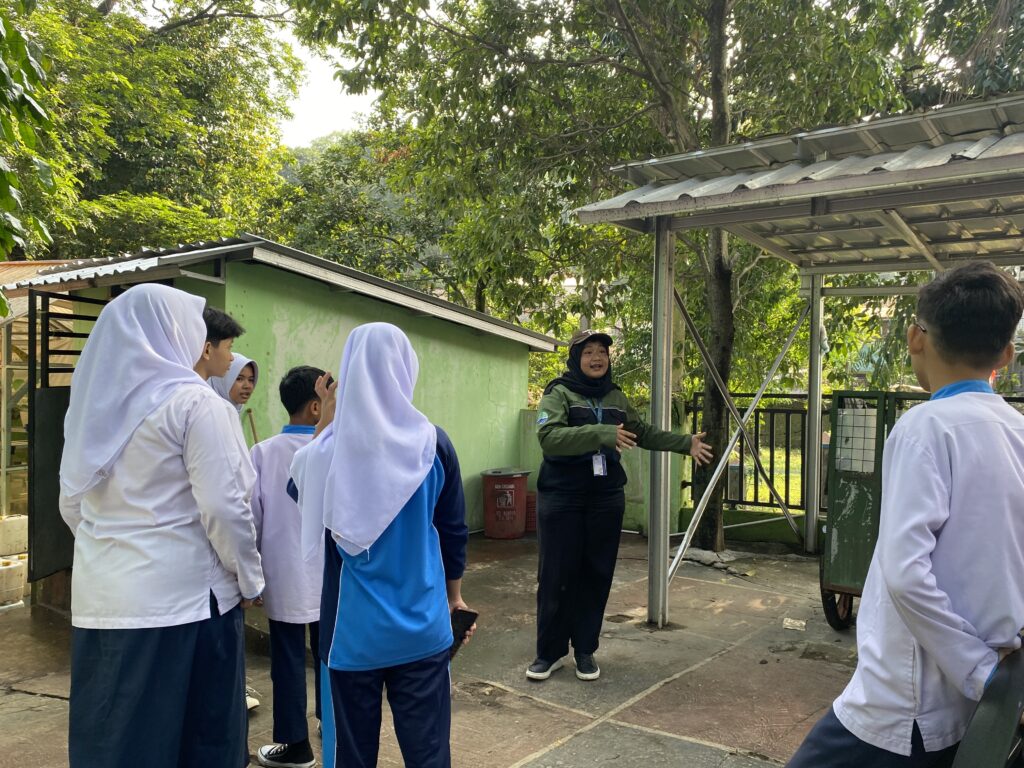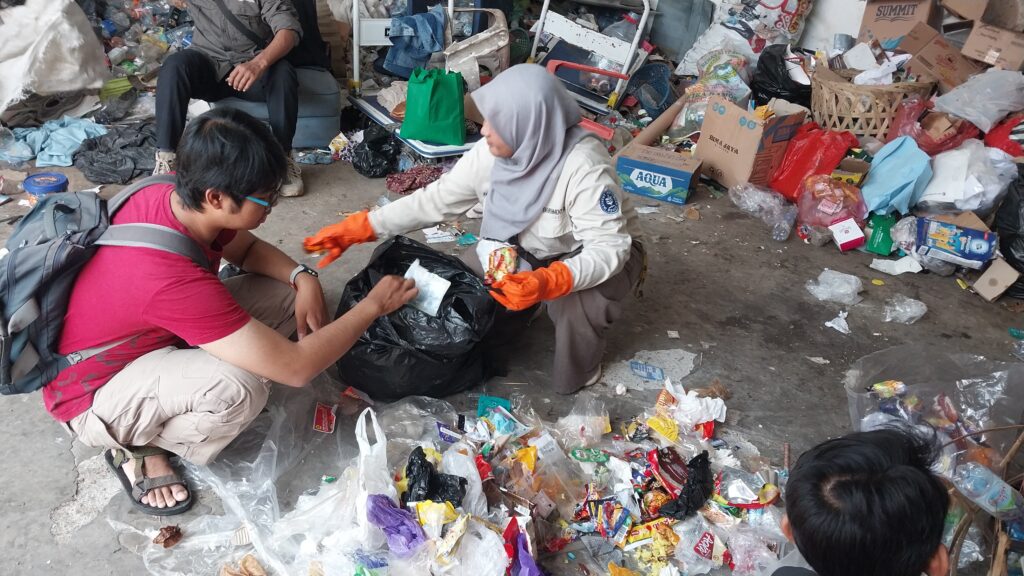Plastic Smart Cities in Indonesia kicked off the waste sorting curriculum in 3 schools jointly with Rekam Nusantara, Urban Sustainability, the Ciliwung Naturalization Task Force, Plastic Smart Cities, and the participating schools in August 2024.
Since the commencement of the waste sorting curriculum, Rekam Nusantara, Plastic Smart Cities’ Indonesian partner in the city of Bogor, has revisited selected schools to monitor the implementation process with the schools’ boards and committees. One of the schools located near the Ciliwung River collected an impressive 241 kilograms of inorganic waste, preventing pollution in the river. The collected inorganic waste was properly sorted and transported to the Mekarwangi Plastic Waste Recycling Center for further processing.


Waste Sorting and Reduction in Schools
Waste sorting is carried out based on type: organic, inorganic, and residual waste. Specifically, Rekam Nusantara assists students in sorting inorganic waste, such as rejected or low-value plastics. The environmental ambassador students apply what they learnt, inspiring peers while reinforcing the commitment of schools and teachers to classroom waste-sorting initiatives.
Rekam Nusantara also provided special orange bags for inorganic waste, which were then transported to the Ciliwung Task Force area before being further processed at the Mekarwangi Material Recovery Facility (MRF).
Apart from the waste sorting, students were also encouraged to bring their meals in reusable lunch boxes, which directly reduce single-use plastic waste in the school environment.

“We have been helped tremendously by our friends at Rekam Nusantara and the Ciliwung Task Force. The students are becoming more enthusiastic about sorting and disposing waste responsibly,” said Zay, the environmental ambassador advisor of SMPN 11 Kota Bogor.
A Challenging Yet Essential Step
Achieving success in waste sorting in schools is not easy. However, this effort is crucial to optimizing waste sorting not only in schools but also in the community. From face-to-face education with students, mentoring by the Ciliwung Task Force, visiting waste management facilities to providing interactive media support and meal and drink kits for 30 selected students, these efforts contribute to ensuring the success of the waste sorting programme.
This initiative stands as a model for other schools to reduce plastic waste and protect the Ciliwung River ecosystem, showcasing the power of collaborative partnerships and strong institutional commitment.
Original article in Bahasa Indonesia can be accessed at:
https://rekam.org/id/blog/upaya-pemilahan-sampah-yang-terpadu-di-sekolah/show
https://plasticsmartcities.wwf.id/feature/article/upaya-pemilahan-sampah-yang-terpadu-di-sekolah


